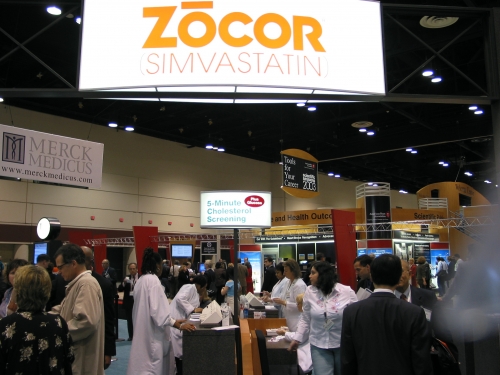Mailbag: Cholesterol and Co Q-10

Statin drugs lower cholesterol, but also lower your body's production of valuable Co Q-10. And that's not the only reason you should be taking Co Q-10 for elevated LDL cholsterol.
Dear AllStarHealth,
Why is it recommended that people who have high-cholesterol take Co Q-10? Co Q-10 doesn’t lower cholesterol. Or does it?
Thank you,
Heather B.
Boulder, CO
Dear Heather,
It’s true that Co Q-10 isn’t a dependable way to lower cholesterol, but if you have high LDL cholesterol levels, it’s probably still a good idea for you to take it anyway. Here’s why.
Most people know that high cholesterol levels are thought to be a major risk factor for cardiovascular disease, but not everyone knows exactly why that is so. Once you understand that, it’ll be clear why Co Q-10 is an important nutrient for anyone trying to combat high-cholesterol.
The very danger that high cholesterol, in particular high LDL, poses to your health arises not from the cholesterol itself, but how it’s metabolized by the body.
Like many substances in the body, the LDL and VLDL fractions of cholesterol are highly susceptible to oxidation.
Oxidation is a process that occurs all over the body, at all times, and takes place at the molecular level. Oxidation occurs when an unstable molecule (aka a free radical) chemically reacts with another molecule, permanently changing both molecules in the process. Most chemicals and structures in the body are susceptible to oxidation and there are thousands of types of free radical compounds capable of inducing it. These compounds arise from both natural/unavoidable and manmade/avoidable factors. Your body’s continual battle to minimize and repair the damage wrought by oxidation begins as soon as you’re born. The immune system and other systems are able to keep up with oxidation at first, but as we age, they fall behind and it’s a battle we eventually lose altogether. You accelerate oxidative processes and ‘age’ yourself faster by adding to your body’s oxidative burden; smoking, overexposure to sunlight, alcohol, consuming oxidized oils and failing to consume enough antioxidant nutrients.
Many of the visible signs of aging (wrinkled skin, age spots) as well as the gradual loss of function associated with aging are due to oxidation damage at the cellular and molecular level.
When LDL oxidizes, that sets in motion the chain of events that leads to the formation of arterial plaque. It’s this arterial plaque that poses a risk to your health by dangerous narrowing blood vessels and lowering the size threshold for particles such as bloodclots to induce blockages that cause heart attacks or stroke. The important thing to remember is that oxidation of LDL is a necessary first step in that undesirable process.
We have some built-in protection against this. Our bodies use substances like Co Q-10 and vitamin E to ‘chaperone’ and protect LDL cholesterol molecules as they travel in the bloodstream. But there are limits to how much Co Q-10 we’re able to produce, and that limit gets lower and lower with age. And like all vitamins, vitamin E can’t be produced at all by regardless of age – it either comes from diet or supplements or your body has to do without.
So as LDL cholesterol levels rise over time, your body’s ability to protect you from LDL oxidation is also declining, unless you intervene with some protective actions on your own behalf.
Foremost among these are supplementing with Co Q-10 and vitamin E, preferably a full spectrum or gamma-tocopherol rich vitamin E supplement.
So the idea behind Co Q-10 and cholesterol isn’t that Co Q-10 lowers cholesterol, it’s that it helps protect you from what makes the high levels of LDL dangerous in the first place.
Going hand in hand with this is the fact that the statin drugs so often prescribed to lower cholesterol also, unfortunately, interefere with your body’s own native Co Q-10 production. So Co Q-10 supplementation may be even more important for these people.



